Last Updated on November 13, 2021
Teething in kittens is something not many cat owners typically worry about as kittens tend to be less destructive during this phase as compared to puppies (especially larger breeds). However, for some kittens this can pose some risks such as digesting toxic materials, developing bad habits, and destroying smaller items in your home. Whether you already have a kitten or are planning on adopting one soon, it is best to be prepared. Here are some tips, toys to buy, and other useful information about teething kittens!
When Does Teething Start?
Kittens typically have their baby teeth come in at about 2 weeks of age. During this phase, the mother cat will help her kittens through this process. Since it is quick, you likely will not notice any chewing or teething happening. By 2 weeks of age, your kitten should have most if not all of their baby teeth however kittens do not keep their baby teeth for long. These teeth will start to come out around 3 months of age and shortly after, the teething begins.
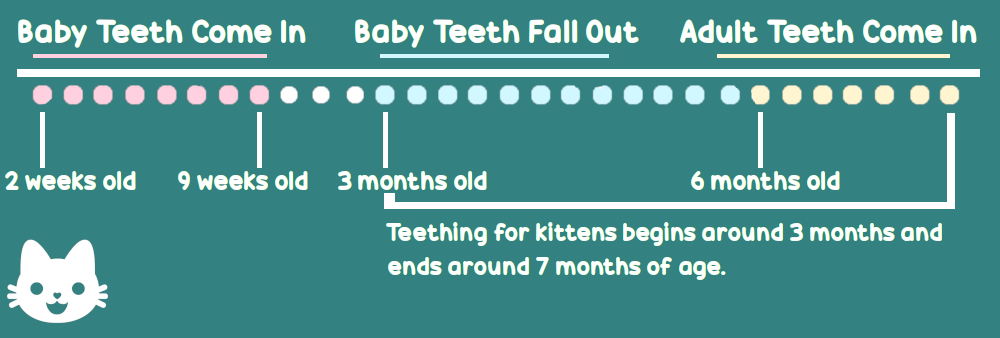
Safety Precautions
Since some kittens have a harder time with teething than others, it is best to keep items that can be harmful out of your kitten’s reach. Make sure wires and cords are hidden or protected, plants are up high, and smaller objects aren’t left lying around. Some kittens have a fondness for chewing on plastic which can be toxic so be sure to keep items that can pose a choking risk for your kitten nowhere in sight. Keep any smaller or breakable toys put away unless you are supervising your kitten’s playtime.
Tips And Tricks To Help Your Kitten
While it is not always necessary to make changes for your kitten, it is best to be aware of the process and know how to handle it. A bad teething habit can become a bad behavioral habit in your kitten’s adult years and you do not want that. Here are some helpful tips to help you and your kitten manage the teething process!
Don’t Play With Your Hands
Kittens can quickly develop a habit of using your fingers as teething toys if you are not careful. It may seem cute now but it won’t be when they reach adulthood and carry on biting you during playtime. Be sure no fingers or toes are viewed as toys to your kitten. If you wear clothing that has strings or other items hanging from it, be sure not to encourage them to play with these either.
Let Your Kitten Know When To Stop
If your kitten has already started chewing on your fingers or toes, let them know it is not okay. You never want to hit your kitten or punish them verbally as what they are doing is normal for them. You simply want to make a loud noise to let them know you are not happy with what they are doing. After a few times of doing this, the habit should stop.
Take Away Toys/Items Your Kitten Is Chewing Too Aggressively
Some toys may be more enjoyed than others for the simple fact that your kitten can really chew into them. While cat toys are generally safe for play, they are not safe to digest! If you notice your kitten chewing on a toy to the point where they are damaging it, remove the toy from them and give them something they can chew on. Be sure to keep any toys that can be chewed up out of your kitten’s reach unless you are supervising.
Invest In The Right Toys
Having the right toys makes a world of difference. When a kitten is teething, it can easily turn anything into a chew toy and most of us have items that are toxic for kittens in our homes if they digest them. Anything from plastic straws to water bottle caps, you do not want your kitten playing with anything they can destroy. Investing in toys designed to help a kitten with teething is the best thing you can do.
Toys That Help
When shopping for toys for your kitten, you want to focus on a few different things. You want to look for toys that are hard to destroy, redirect their attention to something else (away from the pain), and stimulate their natural desire to chew. Here are some of our top recommendations!
Chew Sticks
Providing chew sticks for your kitten is a good way to allow the natural chewing and teething process to occur without a threat of them digesting something toxic. This is the most natural form of teething that is clean and safe for a kitten. Cubs and feral kittens make use of sticks and small branches in the wild for teething.
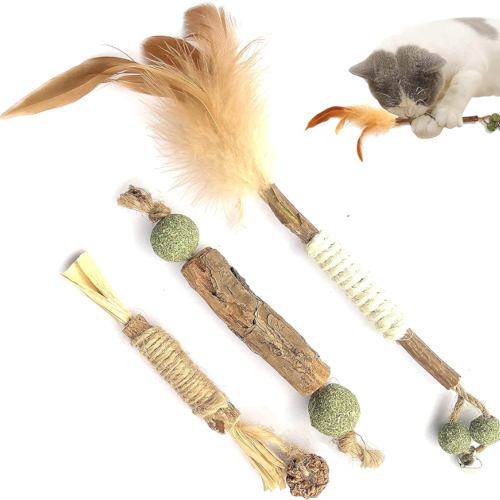
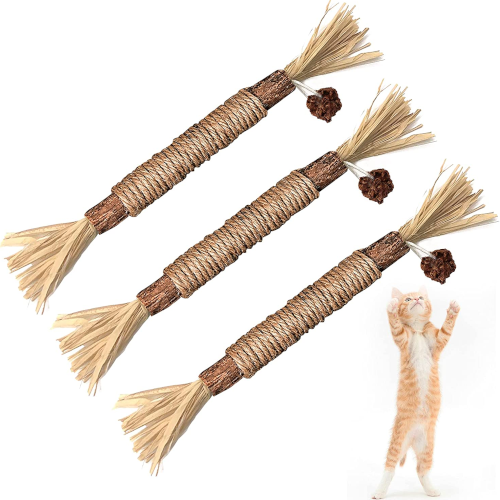
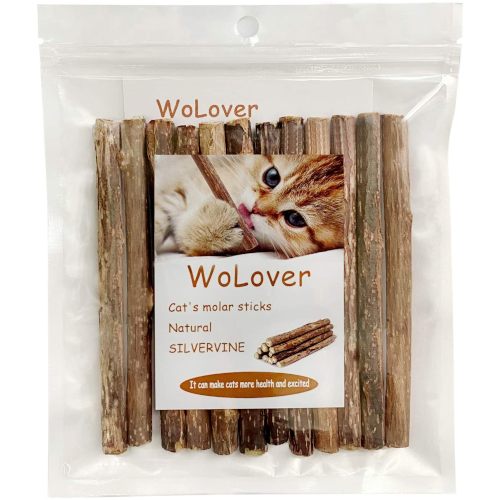
Plush Toys
Not necessarily for teething, some kittens really take to chewing on plush toys. They tend to enjoy rounded and pointed shapes. Some will prefer something with more color and texture so they can really sink their teeth into it for some relief.

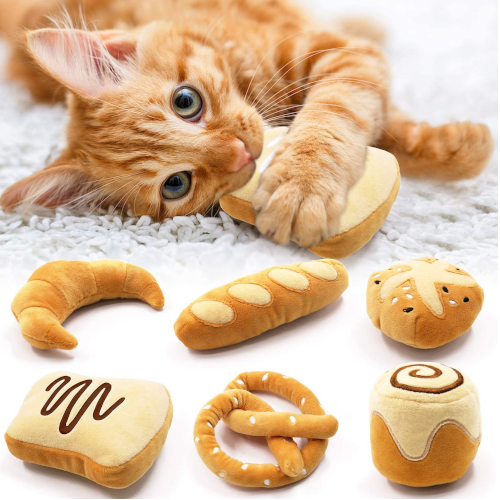
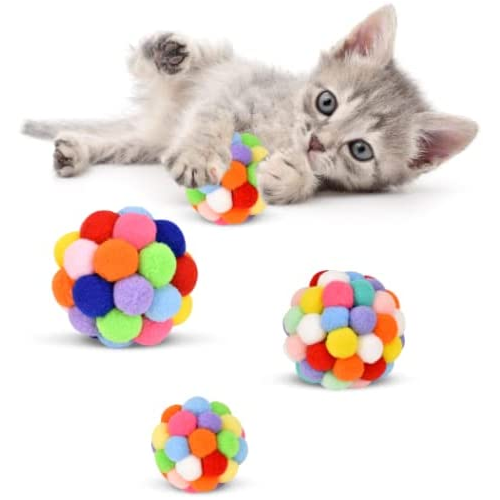
Rope Teething Toys
Rope toys are typically viewed as a dog or puppy toy but plenty of kittens and cats alike enjoy them too! You will want to find smaller rope toys that are easy for your kitten to carry, move, and bat around. Be sure to dispose of these toys if they become unraveled.
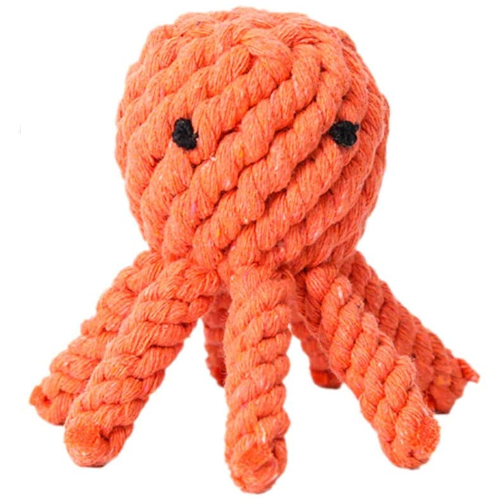
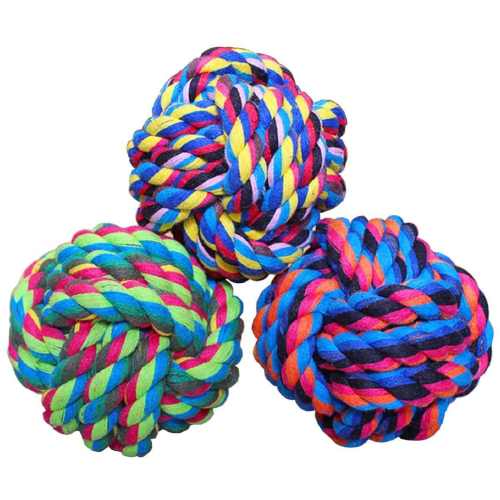
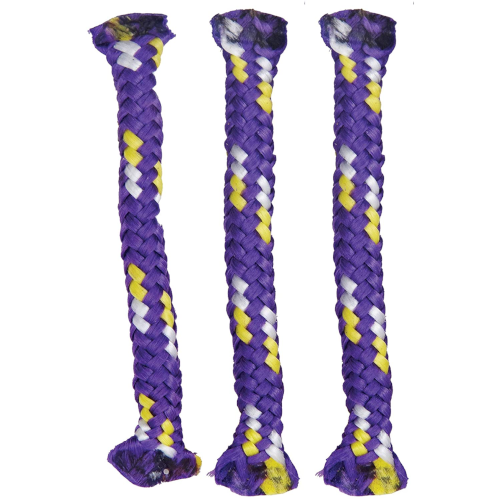
Rubber Teething Toys
This is the standard for puppies and some kittens seem to enjoy rubber teething toys as well. Depending on how hard your kitten chews, you will want to monitor them playing with these types of toys as some kittens chew harder than others and can break off some of the rubber. If your cat enjoys cold water, they might enjoy these being placed in the freezer prior to use just like a baby.
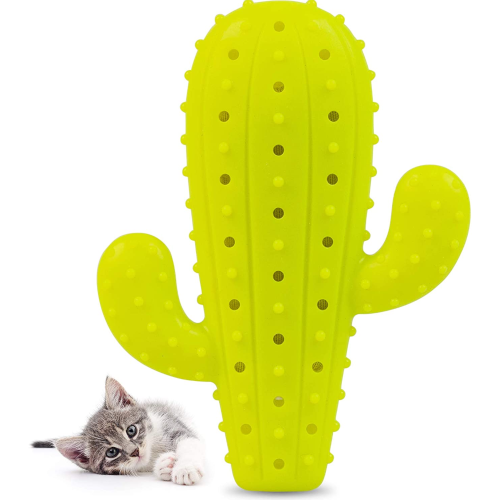
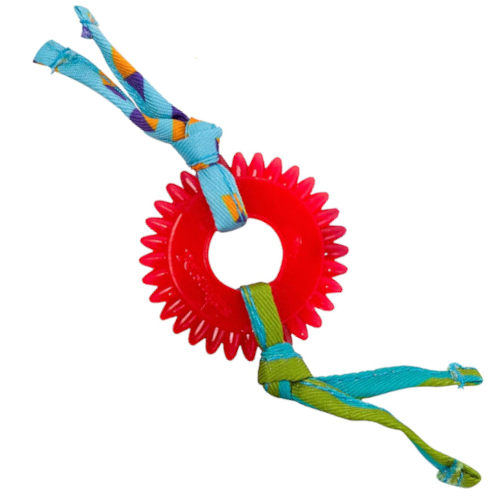
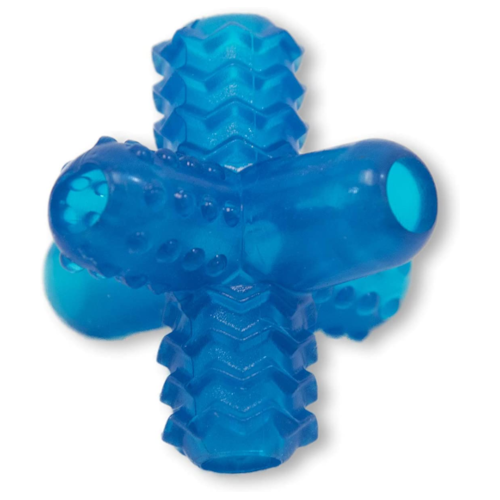
Kicker Sticks
Sometimes a kitten will not take to chew toys and that is okay! The second best option is to provide something to stimulate their playing in a safe way. Kicker toys provide hours of enjoyment and roughhousing, especially for kittens who do not have a playmate.
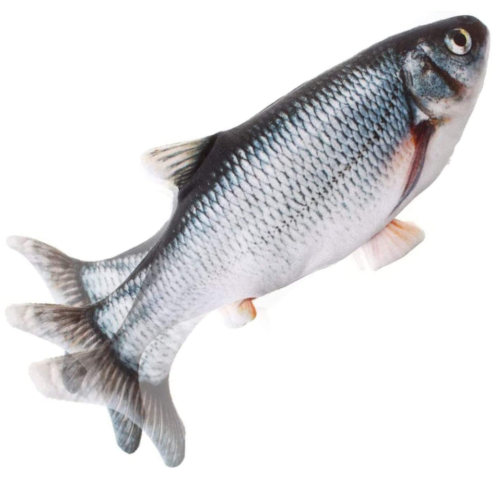
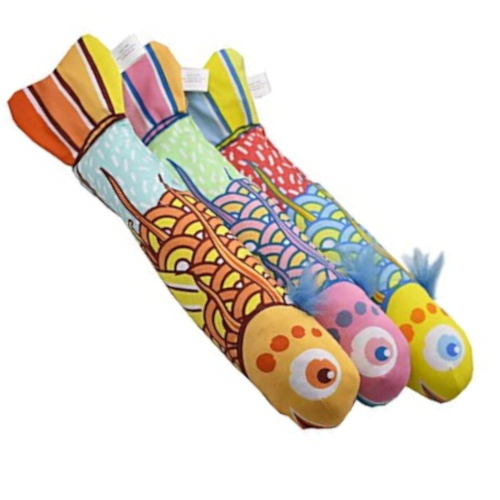
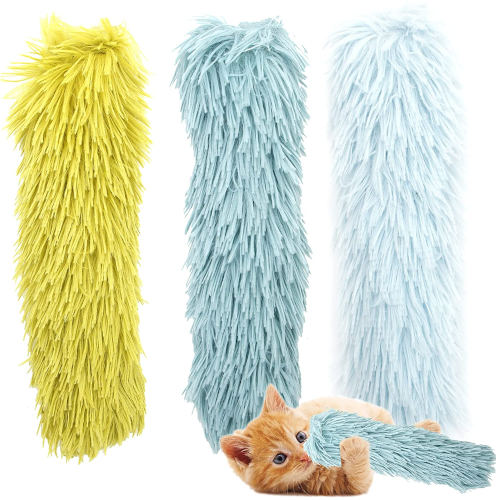
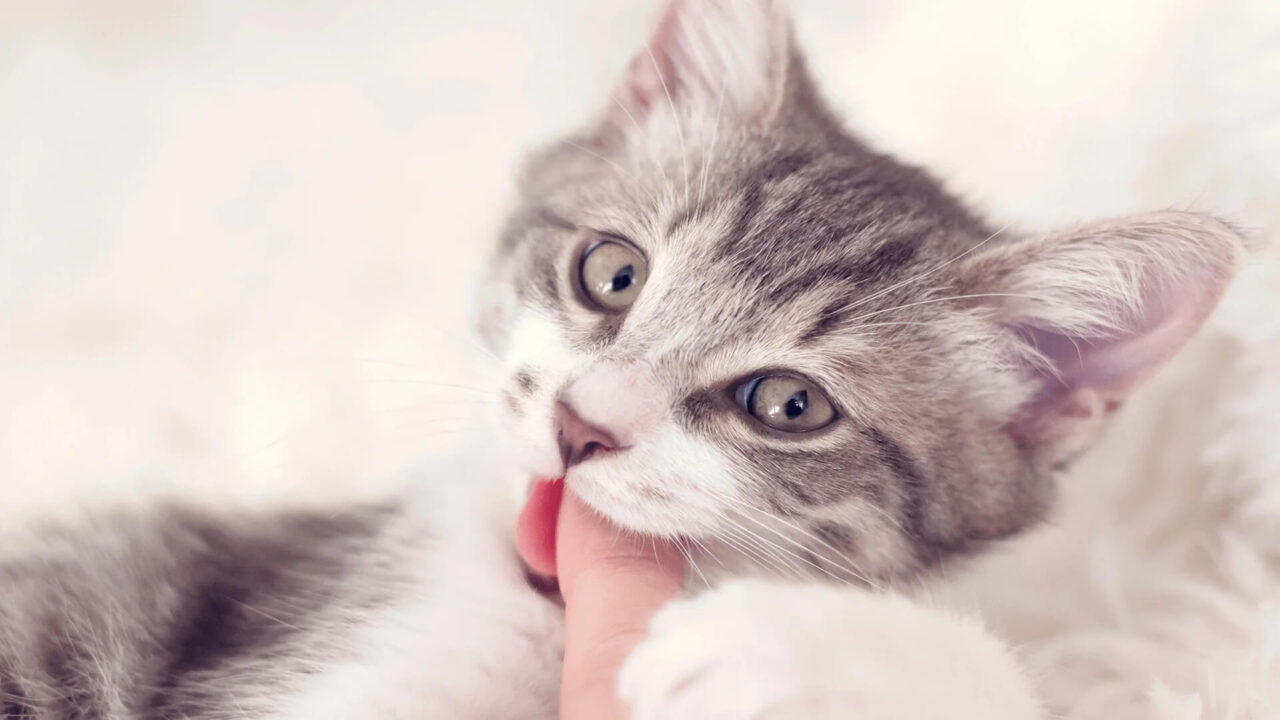
When my kitten had just started teething, I got her some wet and soft food from PetCareRx. It seemed to help her a lot. I also ordered a bunch of chew toys for her.